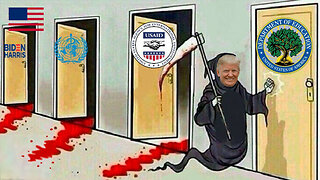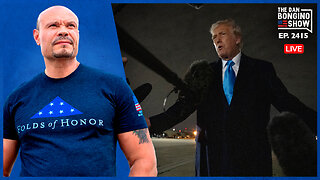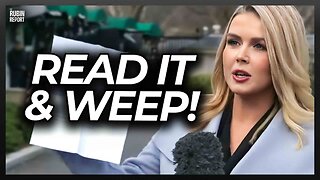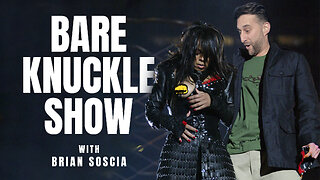Premium Only Content

Cobra EGGS Hatching Cobra Snake #thatmoment
Incubation: Cobra eggs are laid by the female in a hidden location. She may lay anywhere from a few to several dozen eggs, depending on the species. The female cobra typically guards the eggs and may coil around them to provide protection and maintain the right temperature and humidity.
Temperature Regulation: The temperature at which the eggs are incubated plays a crucial role in determining the gender of the hatchlings. Warmer temperatures often result in more male hatchlings, while cooler temperatures lead to more females.
Hatching Time: The incubation period for cobra eggs can vary depending on factors like temperature and humidity. It typically ranges from 60 to 80 days. As the eggs near hatching, you might notice some changes.
Eggshell Softening: Just before hatching, the developing cobra embryos release enzymes to soften the eggshell. This makes it easier for the hatchlings to break out.
Hatchling Emergence: When the time is right, the baby cobras use an egg tooth (a small, pointed protuberance on the tip of their snouts) to pierce the softened eggshell. They then push their way out of the eggs.
Vulnerable Stage: Newly hatched cobra snakes are quite vulnerable. They are small and lack the venomous capability of their adult counterparts. However, they begin to develop venom glands and fangs as they grow.
Post-Hatching Care: In some species, the mother cobra may remain with her hatchlings for a brief period to protect them and help them disperse safely.
Cobra hatchlings are miniature versions of adult cobras and already possess the iconic hood and markings, although they are much smaller and less developed. They must fend for themselves from the moment they hatch, as cobras are solitary animals and do not receive parental care beyond the initial protection provided by the mother.
It's important to note that cobras are venomous snakes, and handling them, especially when they are young, can be extremely dangerous. Interacting with hatchlings or adult cobras in the wild should be left to trained professionals, as they can deliver a potentially deadly bite.
-
 29:57
29:57
The Finance Hub
1 hour agoBREAKING: DONALD TRUMP JR. JUST DROPPED A MAJOR BOMBSHELL!!!
1.05K3 -
 1:57:48
1:57:48
The Charlie Kirk Show
2 hours agoTrump Gets His Cabinet + Killing the USAID Grift + Why Bud Light Collapsed | Frericks | 2.4.2025
136K36 -
 1:21:47
1:21:47
Simply Bitcoin
2 hours ago $1.56 earnedDid America JUST Change The Bitcoin Nation State Race Forever?! | EP 1175
23.4K1 -
 37:13
37:13
Grant Stinchfield
2 hours ago $4.15 earnedBill Gates is Making the Media Rounds Today to Push the Vax and Stop RFK Jr.
26.7K18 -
 53:03
53:03
TheAlecLaceShow
4 hours agoGuest: Rep. Burgess Owens | Trump Wins with Mexico & Canada | DNC Diversity | The Alec Lace Show
19.4K5 -
 1:00:28
1:00:28
The Dan Bongino Show
5 hours agoTrump’s Most Important Fight To Date (Ep. 2415) - 02/04/2025
693K1.19K -
 59:44
59:44
The Rubin Report
4 hours agoPress Gasps When Shown What USAID Spent Money On
92.7K120 -
 1:15:21
1:15:21
Bare Knuckle Fighting Championship
4 hours agoThe Bare Knuckle Show with Brian Soscia
21.1K3 -
 1:28:32
1:28:32
The Shannon Joy Show
5 hours ago🔥SHOCK Report - The COVID Dossier! A Coordinated Global Military Operation: Live EXCLUSIVE W/ Sasha Latypova & Debbie Lerman.🔥
19.4K2 -
 1:57:04
1:57:04
Steven Crowder
5 hours agoUSAID Exposed: Everything You Need to Know Featuring Mike Benz
411K222